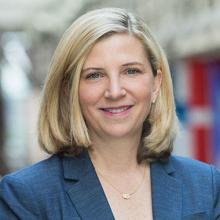Leadership and Global Engagement: A 2020 Perspective

What a year—2020! We have had to take swift action consistent with expectations we have for the development of our students, faculty, and staff. We have had to be open to seeing ourselves and others differently, recognizing our implicit biases, suspending judgement, exploring all possibilities, and embracing ambiguity with calmness and curiosity. We have been actively listening, being, and doing, adapting to a rollercoaster of complexity at a rapid pace. We have worked more mindfully and humbly across all areas of difference, paying necessary attention to combatting systemic racism in our work and organizations. This fight is our shared responsibility.
In many ways, my personal and professional lives have become even more intertwined, and I have had to share more with my colleagues than ever before. I lead a dedicated team of 16 dynamic, passionate international educators. I have tried to support each of them as they navigate their own difficulties of work and home life, while I struggle as the primary caregiver of my 87-year-old mother, managing changes in her dementia with the limitations on being physically present with her.
Here is my humble attempt to share ways of leading and engaging locally and globally—pursuing a more inclusive community, building trust through careful listening, respecting disagreement, and taking more risks.
Lead with Vulnerability
First, international educators have had to lead with more vulnerability and with careful attention to our well-being and that of our families, colleagues, and students. We must remember to take care of ourselves before we can












